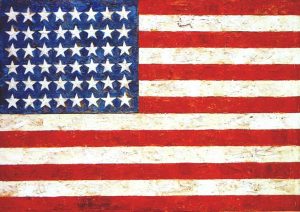Pop Art and Literature
 I do not like to talk about art, its impact on society and all that. I do not like, does not mean condemn such reflections. Well, you know how often it is customary to think and talk, saying that such inventions are the lot of homosexuals-aesthetes, all art was fucked up by bare asses, only the old school, only Leo Tolstoy.
I do not like to talk about art, its impact on society and all that. I do not like, does not mean condemn such reflections. Well, you know how often it is customary to think and talk, saying that such inventions are the lot of homosexuals-aesthetes, all art was fucked up by bare asses, only the old school, only Leo Tolstoy.
Simply, in my opinion, I lack the knowledge and experience to feel my own in this area. This, of course, is a small problem if you have the necessary arrogance and incentive, for which you enter areas that you only have a vague idea of. I have a lot of arrogance, there is no obvious incentive, but I will still try to become this same pederast-esthete and reflect on clever or supposedly clever topics. I’m probably already fed up with you and myself, too, deliberately cautious way of choosing words, making remarks, making a reservation, but sorry guys, caution in an unfamiliar place in unfamiliar circumstances is not a whim, but a necessity, otherwise you will sit down in a puddle, and remember what your name was.
Well, finally having finished with a weary and tedious introduction, I would like to reflect a little on the pop art of the 60s. That is, I don’t want to dethrone Warhol, the Factory, the cans, the portraits of Monroe for the hundredth time, you know it perfectly well without me. Let me just express my modest opinion that I have always seemed extremely intriguing how simple things like the same bank or paper banknote are transformed into bright images and finished works with the help of a few simple foci and a well-chosen viewing angle. Pop art attracts primarily simplicity and brightness. These two concepts, in some way, his bread and circuses. Of course, here the form prevails over the content. This genre does not require any kind of spiritual tension from you, looked and went on. But still, pop art has a very powerful basis: simplicity, brightness, ability to work with simple understandable images, turning them into symbols, and a very important quality that allows the author to avoid monstrous absurdity, an excellent sense of humor.
I, as a person writing, well, or to reduce the level of pathos, a little interested in literature and writing (scribbling) takes the question what effect did pop art have on this type of creativity. It seems to me that for pop art it is very important to quickly reach a person, to attract his attention with brightness. With the help of pictures, photographs and, in general, graphics, this is certainly easier to achieve. And in literature, especially in prose, many letters, many words, and in order to go through all this jumble of lexical and semantic constructions, some effort and time are required. But the basic philosophy of pop art is precisely to immediately capture the attention. In this regard, the poetic form with its imagery and conciseness is more in tune with the spirit of the current.
In conclusion, I want to say that I in no way tried to somehow exalt pop art over other currents, I just wanted to reflect on its main features, and how far it took roots in art and in our life.



